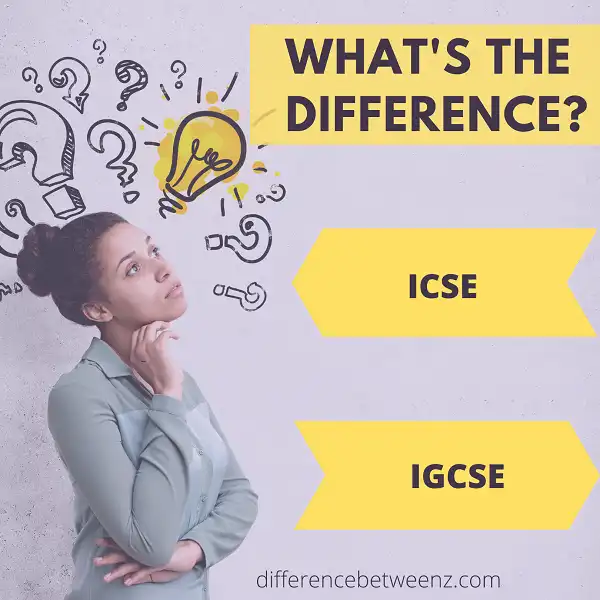The ICSE (Indian Certificate of Secondary Education) and the IGCSE (International General Certificate of Secondary Education) are both options for students after completing their 10th grade. Both exams have similarities and differences that students should be aware of before making a decision on which exam to take.
What is ICSE?
The Indian Certificate of Secondary Education (ICSE) is an academic qualification granted to students who have completed class 10 in the Indian education system. The ICSE is administered by the Council for the Indian School Certificate Examinations (CISCE), a non-profit organisation that designs and implements educational curriculum for schools in India.
The ICSE curriculum covers a wide range of subjects, including English, mathematics, science, social studies and foreign languages. Students who successfully complete the ICSE examinations are typically eligible to apply for admission to universities in India and abroad. In recent years, the ICSE has become increasingly popular among students and parents looking for an alternative to the traditional Indian schooling system.
What is IGCSE?
The International General Certificate of Secondary Education, or IGCSE, is an internationally recognized qualification for students aged 14-16. It is equivalent to the GCSE in the UK and the ninth grade in the United States. The IGCSE is offered by a number of different examination boards, including the University of Cambridge International Examinations, Edexcel, and AQA.
The curriculum is generally more flexible than that of other secondary qualifications, allowing students to study a range of subjects that suit their abilities and interests. In addition, the IGCSE is recognized by universities around the world, making it an excellent choice for students who are looking to study overseas.
Difference between ICSE and IGCSE
The International General Certificate of Secondary Education (IGCSE) is an internationally recognized qualification for school students. It is typically offered to students aged 14-16 and is equivalent to the GCSE in England. The IGCSE has a stronger emphasis on practical skills and independent learning than the GCSE and is offered in a wide range of subjects.
The International Baccalaureate (IB) diploma is also internationally recognized and is typically offered to students aged 16-18. The IB diploma is a more challenging qualification than the IGCSE, with a greater emphasis on independent research and higher-level thinking skills. Both the IGCSE and IB are widely respected by universities and employers, and offer students a well-rounded education that will prepare them for further study or work.
Conclusion
The Indian Certificate of Secondary Education (ICSE) and the International General Certificate of Secondary Education (IGCSE) are both offered by the Council for the Indian School Certificate Examinations (CISCE).
- The ICSE is an examination that is taken by students in India, while the IGCSE is an international examination that can be taken by students in any country.
- The ICSE covers grades 10 and 11, while the IGCSE covers grades 9 and 10.
- The ICSE has more of a focus on academics, while the IGCSE has a more balanced curriculum that includes both academic and practical subjects.
- The CISCE is a government organization, whereas Cambridge Assessment is a private


